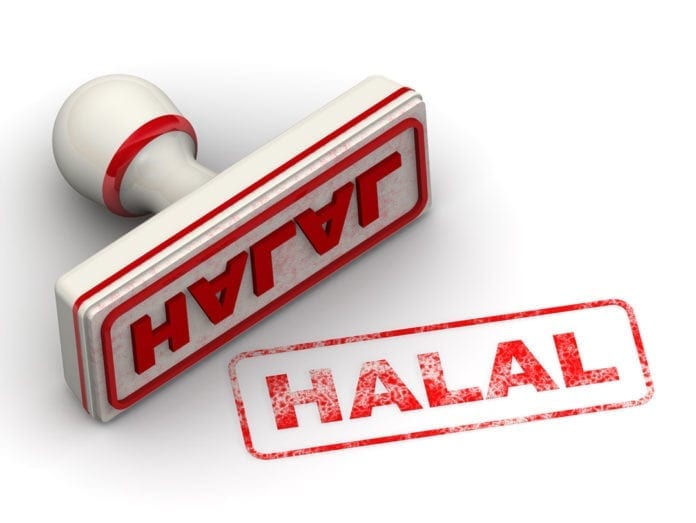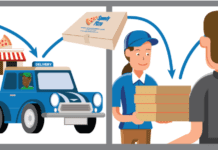Want to capture an emerging, but underserved demographic? Then it’s time to become familiar with the word ‘halal’.
In Arabic, ‘halal’ means ‘permissible’. Its meaning to Muslims is not so different from what ‘Kosher’ represents for the Jewish community. When it comes to food, a halal label tells the Muslim consumer that it’s okay for them to eat it. In the foodservice industry, ‘halal’ also works as a marketing device to attract Muslims to a business.
Opening up your business to this community could pay huge dividends. However, there are very specific religious and cultural needs that must be addressed before you can take advantage of this growing demographic. Keep reading to learn how your business can become halal-ready.
Getting to know the Muslim consumer
Would you be surprised to learn that Muslims are the fastest growing religious group in Canada? Only Christians outnumber Muslims when it comes to religious affiliation. A large wave of Muslim immigrants settled in Canada’s big cities in the early 60s and 70s, mostly from Asia and the Middle East. Fast forward to 2018, and some of these families are now entering their fourth generation as Canadians.
Like many Canadians, this demographic wants to enjoy Greek, Italian, Japanese, Thai, and other exciting cuisines. Eating halal doesn’t mean only eating traditional Muslim dishes, so don’t fall victim to stereotypes. View them as mainstream consumers, but with a specific set of requirements.
There are places to get halal steak, halal brunch, and even French halal haute cuisine. That’s on top of more traditional South Asian and Middle Eastern halal restaurants. When it comes to halal, nothing is off the table – except pork and alcohol.
Preparing your business
It’s important to understand that the term halal is broadly applicable, and it’s not limited to just food; it’s part of an entire way of living. As you’ll find in most religions, there are strict adherents, those who pay it lip service only, and many who fall somewhere in between. The level of accommodation you’re prepared to make will dictate the nature of the halal customers who’ll try your place of business.
If you’re preparing halal food on-site, you won’t need a separate kitchen. Still, some separation will be necessary if you’re planning to serve halal and non-halal (known to Muslims as ‘haram’) food. At the very least, you’ll require separate cooking surfaces, a separate prep area, and tools dedicated to halal preparation. By the way, meat isn’t the only thing that may or may not be halal. For example, not all sugar is halal. For your food to be halal, all your ingredients must be halal and must be kept apart from non-halal ingredients.
Not going exclusively halal? Then consider carefully the other items you plan to offer. Alcohol and pork products are forbidden to Muslims, and if you have them available it may cause some potential customers to think twice. It isn’t so much that the presence of the ingredients themselves is objectionable, but there will always be the fear of cross-contamination, whether the risk is real or not.
Anyone looking to attract Muslim families would do well to note that households in this community are generally larger than the average Canadian family. Be prepared with a few more high-chairs and change tables. Don’t forget to offer kid-friendly halal options, too – parents will appreciate the gesture!
Saying you’re ‘halal’ doesn’t mean you are
In 2016, the Canadian Food Inspection Agency (CFIA) changed food labelling regulations across the country. It’s no longer enough to just say you’re halal; that claim must be verified by a certification body.
Not only does this regulation include retail packaged goods, it also applies to restaurant menus and businesses. Ultimately, not only do your ingredients have to be certified, your business itself needs halal certification before you can make the claim.
Creating a halal menu
As discussed earlier, almost any type of cuisine can be made halal. Therefore, there’s no need to break your own mold and recast yourself as halal; just make what you know. And remember, there’s much more to halal food than just chicken and rice, no matter what some might have you think, so don’t work too hard at reworking your existing offerings.
Going halal may be as simple for you as swapping out a few ingredients. And switching to a halal supplier for your meats, of course.
How do I reach the halal market?
Generally speaking, you probably have little notion when, where, or how to get your business’s name in front of potential Muslim customers. As with any community, it’s just a matter of learning what they do, and where they do it.
Do not underestimate the power of social media. In the digital age, “social media” really translates to “word of mouth” – if people like you and what you do, they will tweet, post, and comment for all to see. Right out of the gate you’ll need to establish precise halal procedures. Trust is crucial in the Muslim community, and if you have it, it will spread. But if you break it, that will spread, too.
It’s also important to have a marketing professional working alongside you who understands this demographic. The benchmark for ethnic marketing in Canada has always been the Chinese community, but in just a few short years the number of Canadian Muslims will exceed the local Chinese population*. Partnering with someone who already “gets” the Muslim consumer will put you in a position to capitalize on this exciting and emerging opportunity.
*As projected by Stats Canada via alternative religious mobility





















